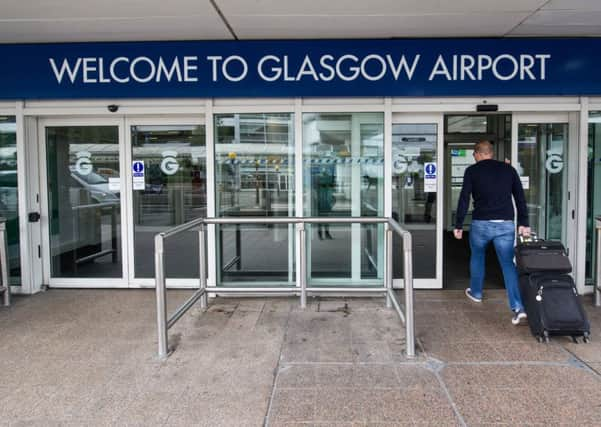All alcohol bought at airports to be sealed in plastic bags


The measure may be used to enforce a possible ban on travellers drinking their own alcohol on flights, a Government document reveals.
Ministers are also considering introducing tougher penalties for drunkenness on aircraft and overhauling licensing laws for airside premises.
Advertisement
Hide AdAdvertisement
Hide AdThe government set out the proposals in a recent preliminary document as it develops its Aviation Strategy.
More than one in six people (18 per cent) who have flown in the past three years have witnessed aggressive or drunken behaviour on board, according to the Civil Aviation Authority.
Some 420 disruptive passenger incidents were reported to the regulator in 2017.
The real extent of the problem could be more serious as many incidents are not recorded.
Last month an easyJet flight from Manchester to Paphos in Cyprus was diverted to offload four women after a group were drinking, swearing and threatening passengers.
In August a mid-air brawl involving men and women broke out on a Ryanair flight from Newcastle to Alicante.
The carrier claimed the incident demonstrated the need for a two-drink limit per passenger at airports.
Sealed bags are currently only used for airport alcohol purchases by passengers taking multiple flights to enable them to pass through additional security checks.
Advertisement
Hide AdAdvertisement
Hide AdExisting laws prohibit a person being drunk on an aircraft, with a maximum punishment of two years in prison and an unlimited fine.
But there is no ban on passengers consuming their own alcohol while they fly, although this is a policy of UK airlines.
Aviation minister Baroness Sugg said: “Disruptive behaviour can ruin flights for both passengers and crew. Airports and airlines have made good progress in addressing this behaviour, but with incidents on the rise we want to examine the existing prevention work and penalties to see what more can be done.”
A recent report by a House of Lords committee recommended that the Licensing Act 2003 should be extended to airside premises at airports in England and Wales to give licensing authorities greater oversight. Government officials are considering the impact of this on passenger behaviour.
The Aviation Strategy will be put to public consultation in the autumn, with the final version published early next year.
A spokesman for Airlines UK, the industry association representing UK-registered carriers, said its members were doing “everything they can” to tackle the problem of disruptive passengers, including supporting a voluntary code of conduct.
He described the introduction of sealed bags as “a really interesting idea” and welcomed the Government’s decision to consider “closing the licensing loophole”. A survey of 1,874 people commissioned by Airlines UK found that 80 per cent believe airport shops and bars which sell alcohol should be subjected to the same licensing requirements as those in towns and cities.